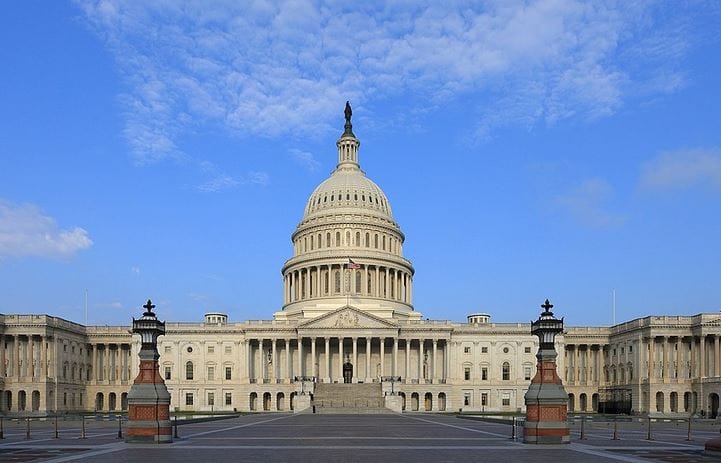Section 230
‘Our bill gives Big Tech a choice: Work with Congress to ensure the Internet is a safe, healthy place for good, or lose Section 230 protections entirely,’


WASHINGTON, May 12, 2024 –Two senior House members on Sunday unveiled draft legislation that would repeal the law that shields tech platforms from legal liability for content posted by users and the platforms’ own efforts to modify or delete content deemed in violation of service rules.
The bill repealing Section 230 of the Communications Decency Act in 1996 was released by House Energy and Commerce Committee Chair Cathy McMorris Rodgers, R-Wash. and Ranking Member Frank Pallone, Jr., D-N.J. They co-authored an Op-Ed in the Wall Street Journal explaining their purposethat was posted about the same the bill went live on the committee’s website.
In framing the issue, the lawmakers said in their article that they want to sunset Section 230 because Big Tech firms have allegedly used immunity to develop “algorithms that push harmful content on to our kids’ feeds and refusing to strengthen their platforms’ protections against predators, drug dealers, sex traffickers, extortioners and cyberbullies.”
The three-sentence bill would sunset Section 230 on Dec. 31, 2025, which the lawmakers said would give Congress and tech companies sufficient time to reach a compromise on a new law.
“Our bill gives Big Tech a choice: Work with Congress to ensure the Internet is a safe, healthy place for good, or lose Section 230 protections entirely,” McMorris Rodgers and Pallone said.
They added, “Congress’s failure to revisit this law is irresponsible and untenable. That is why we’re taking bipartisan action.”
On the 2020 campaign trail, President Joe Biden said he supported repeal of Section 230.
“Section 230 should be revoked, immediately should be revoked, number one. For [Facebook co-founder Mark] Zuckerberg and other platforms,” Biden said.
In February, the Supreme Court heard arguments in two cases on laws passed by Texas and Florida that limit the breadth of Sec. 230 immunity.
In reducing Section 203 immunity, the Texas law would prohibit large social media companies from taking down posts based on the views expressed. The Florida law bans Big Tech from de-platforming Florida political candidates.
The Court, which is expected to rule within a few months, has to determine whether the state laws abridge First Amendment protections of the tech platforms. The cases are Moody v. NetChoice and NetChoice v. Paxton.
Section 230 is sometimes referred to as the 26 words that created the Internet.
Specifically, Section 230 provides broad protection to “interactive computer services” in stating that that they cannot be considered the publisher or speaker of any information provided by another information content provider. Tech platforms generally can’t be held liable for restricting access to objectionable material in good faith.
“This means that a social-media company, for example, can’t easily be held responsible if it promotes, amplifies or makes money from posts selling drugs, illegal weapons or other illicit content,” McMorris Rodgers and Pallone said in their article.
Last June, Sen. Josh Hawley, R-Missouri, and Sen. Richard Blumenthal, D-Conn., introduced a bill that would create a Section 230 carve-out that would allow social media companies to be sued for spreading harmful content build by artificial intelligence (AI). The law is intended to curb AI-generated content that includes “deepfake” photos and video that are nearly indistinguishable from the real thing.
Last February, a group of Senate Democrats introduced a bill that would “allow social media companies to be held accountable for enabling cyber-stalking, online harassment, and discrimination on social media platforms.” Among other things, the bill would expose tech firms to civil liability for ads and other paid content that target “vulnerable consumers with ads enabling frauds and scams.”




